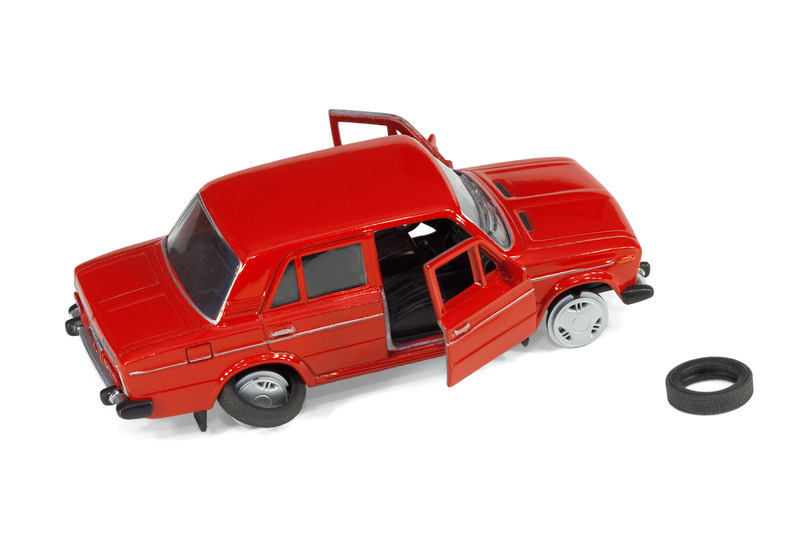Ways to Effectively Lessen Waste in Your Household
Want to make your home more sustainable? Reducing household waste is one of the best places to start. With landfills piling up and climate change concerns on the rise, it's vital that we all do our part to reduce, reuse, and recycle. In this comprehensive guide, we'll explore effective strategies and innovative tips on how to lessen household waste for a cleaner, greener future.
Why Is Reducing Household Waste Important?
Lessen waste in your home not only helps the environment but also offers financial benefits and can improve your overall quality of life. Every day, the average family generates substantial waste, most of which can be avoided or repurposed. By actively participating in waste reduction, you're:
- Conserving natural resources
- Decreasing pollution and landfill usage
- Saving money through resourceful living
- Encouraging healthy, mindful choices for your family
- Playing a role in global environmental conservation

Practical Ways to Reduce Waste at Home
There are countless approaches to lessen waste in your household. From changing purchasing habits to composting food scraps, every small step can have a big impact. Read on for actionable strategies to create a zero-waste or low-waste lifestyle right where you live.
1. Practice The 3 R's: Reduce, Reuse, Recycle
Let's start with the foundation of all waste management--reduce, reuse, and recycle. These principles are the building blocks for any waste reduction plan.
- Reduce by only purchasing what you truly need and embracing minimalism.
- Reuse items as much as possible before discarding them.
- Recycle materials like paper, glass, aluminum, and certain plastics according to local guidelines.
These strategies help you avoid unnecessary purchases, cut down on packaging, and ensure materials find new life instead of ending up in a landfill.
2. Reevaluate Your Shopping Habits
One of the most effective ways to lessen household waste is by making conscious shopping decisions:
- Opt for products with minimal or recyclable packaging.
- Buy in bulk to reduce packaging waste.
- Carry reusable shopping bags, water bottles, and coffee cups to avoid disposables.
- Choose quality over quantity to minimize replacement and disposal.
- Support local and eco-friendly brands that value sustainability.
Every purchase you make sends a message to manufacturers, so be a conscious consumer and choose products that align with your waste reduction goals.
3. Compost Organic Waste
Did you know that over 30% of household waste is composed of organic materials? Instead of sending your food scraps and yard waste to landfill, set up a composting system:
- Compost fruit and vegetable scraps, coffee grounds, eggshells, and yard waste.
- Create a backyard compost pile or use a compost bin to keep your home tidy.
- Use finished compost to enrich your garden soil, reducing the need for chemical fertilizers.
Composting not only diverts waste but also creates a valuable resource for your plants!
4. Reduce Food Waste
Food waste is a major environmental issue. Employ these strategies to ensure you make the most of your groceries:
- Plan meals and create grocery lists to avoid overbuying.
- Store food properly to increase shelf life.
- Repurpose leftovers into new meals to avoid throwing food away.
- Understand food labeling--many "best by" dates are just guidelines, not hard expiration dates.
Reducing food waste saves you money and keeps food from filling up landfills where it produces methane, a potent greenhouse gas.
5. Ditch Single-Use Items
Single-use plastics and disposables are among the top sources of household waste. Shifting to reusable alternatives is a powerful way to cut down on waste:
- Swap plastic wrap for beeswax wraps or silicone lids.
- Use cloth napkins instead of paper ones.
- Replace disposable razors with a reusable safety razor.
- Choose refillable cleaning products and toiletries.
Every reusable item replaces dozens--sometimes hundreds--of disposable ones over its lifetime.
6. Recycle Right
Recycling is great, but only when done correctly. Many well-intentioned recyclers accidentally contaminate loads, leading to more waste. Follow these tips to recycle smarter:
- Clean containers thoroughly before recycling.
- Know your local recycling guidelines--some materials aren't accepted everywhere.
- Avoid wish-cycling; when in doubt, throw it out, or research proper disposal options.
Educate yourself and your household on what goes where, to make sure your recycling efforts are truly effective in reducing household waste.
7. Donate, Sell,& Share Unneeded Items
Before you send unwanted items to the landfill, give them a second life:
- Donate gently used clothing, furniture, appliances, and toys to local charities.
- Sell items online or at garage sales for extra income and to keep items in use longer.
- Participate in community group swaps or "Buy Nothing" projects to share resources.
Rehoming keeps usable goods out of the waste stream and supports your community.
8. Repair and Repurpose
Fixing broken items may seem old-fashioned but is a highly effective waste reduction method. Instead of tossing things as soon as they break:
- Attempt to repair clothing, electronics, and furniture.
- Transform jars into storage containers, or use them as vases or organizers.
- Get creative with DIY upcycling projects.
Repurposing saves money, taps into your creativity, and results in less household waste.
9. Avoid Over-Packaged and Disposable Products
Many everyday products come with unnecessary packaging. To cut down on household trash:
- Purchase loose produce instead of pre-packaged.
- Bring your own containers for bulk items, deli, or takeout food (where allowed).
- Choose concentrates, bar soaps, and refillable options.
Being mindful of packaging helps you minimize your waste output and supports businesses committed to sustainability.
Adopt Waste-Reducing Habits for the Whole Family
Reducing waste is more successful (and enjoyable!) when everyone in your household participates. Involve your family with these strategies:
- Make waste reduction a fun challenge--track your progress, set goals, and reward achievements.
- Educate kids on the value of less waste by reading books and doing zero-waste crafts together.
- Assign roles: let children help with recycling or composting duties.
- Host swap parties with friends or neighbors to exchange toys, books, or clothes.
- Lead by example--demonstrate mindful consumption and waste management choices every day.
Creating low-waste routines sets valuable habits for life.
Innovative Methods to Lessen Household Waste
Looking for advanced ways to take your waste reduction efforts to the next level? Consider these innovative approaches:
- Install a greywater system to reuse water from sinks, showers, and laundry for garden irrigation.
- Try vermicomposting--use worms to break down food waste faster and more efficiently indoors.
- Invest in a countertop food recycler that turns scraps into fertilizer within hours.
- Switch to digital bills and subscriptions to dramatically reduce paper clutter.
- Support circular economy brands that take back or refill your old bottles and boxes to keep packaging out of landfills.
Utilize Waste-Tracking Apps and Tools
Keeping tabs on your household waste output can inspire deeper change. Try:
- Logging what you throw away each week to spot patterns and opportunities for improvement.
- Using waste-tracking apps to monitor recycling and composting efforts.
- Participating in local zero-waste challenges for community motivation and support.
Small changes add up, and seeing your progress can inspire ongoing commitment!

Conclusion: Every Effort Matters
Learning ways to effectively lessen waste in your household is an empowering step towards a more sustainable lifestyle. By making simple shifts in your daily habits, shopping with intention, and involving your whole family, you can make a real difference for the planet and future generations.
Start small, stay consistent, and celebrate your successes. The journey to reducing household waste is ongoing but rewarding--and every action counts!
Ready to lessen waste at home? Remember, whether you're starting with composting, ditching disposables, or revolutionizing your shopping habits, the best time to begin is today.
Frequently Asked Questions About Reducing Household Waste
What is the easiest way to reduce waste at home?
Start by refusing single-use plastics, composting food scraps, and recycling properly. Even small adjustments can have an immediate impact on your household waste output.
How can I reduce waste without composting?
You can focus on purchasing less, reusing items, recycling accurately, and choosing products with minimal packaging. Donating and repairing also significantly reduce waste without composting.
How do you get your family on board?
Lead by example and make it fun--hold friendly competitions, reward zero-waste habits, and educate with engaging activities to get everyone excited about waste reduction!
What's the best way to minimize food waste?
Meal planning, proper food storage, repurposing leftovers, and understanding expiration labels are key strategies.
Ready to transform your home and reduce your household waste? Start today, and inspire positive change for a brighter, cleaner future!